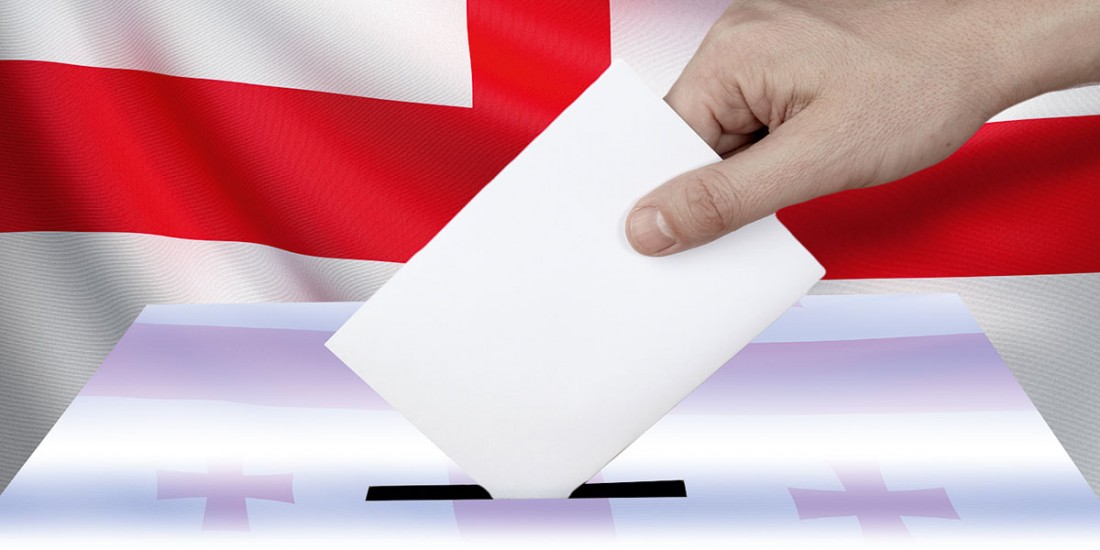Lado Bitchashvili, Shida Kartli
After the dispersal of the June 20 protest demonstration, the demonstrations resumed with two main demands to the Government of Georgia: resignation of the Minister of Interior Giorgi Gakharia and proportional parliamentary elections in 2020.
The Georgian Dream’s leader Bidzina Ivanishvili compromised only over one of the two demands of the protesters and announced to hold the parliamentary elections with proportional system and with zero barrier in 2020. At the briefing Bidzina Ivanishvili underlined that with it, all political parties will be able to enter the parliament without “sheltering” any other political party.
Civil activists reacted to this initiative of Ivanishvili in Gori too. Arina Tavakarashvili said that instead compromising over the single mandate system, the government plans to attract their satellite political parties into the parliament through zero barrier.
“The protest of the youth had outcome only in one part of their demands – the parliamentary elections in 2020 will be held with proportional system but Ivanishvili took the advantage and repeated the political decision of Shevardnadze, when 42 political parties were represented in the 1992-1995 Parliament. Then and now, it aimed to move the protest from the street into the parliament. With the zero barrier the pro-Kremlin political groups will have chance to enter the parliament even with limited number of supporters,” Arina Tavakarashvili said, who thinks that in 2020 we will have the new parliament very similar to 1992-1995 convocations parliament, where we witnessed political crisis rather than healthy political process.
Some members of the ruling party also opposed Bidzina Ivanishvili’s initiative; among them is MP Kakha Okriashvili.
“I oppose this system and I have relevant arguments for it, while my opponents do not have them. They just wish to invite political idiots in this building. Moldova shifted to the proportional system ten years ago and they faced serious problems; this year they returned back to the mixed system. Last year, Italy went back to the mixed system as well,” MP Kakha Okriashvili from the parliamentary majority said.
Seeing the contradictory reactions in the ruling party, one part of the opposition party members doubts Bidzina Ivanishvili tried to gain time and the initiative will not gain enough votes in the parliament because nowadays there are 75 single mandate MPs and 75 proportionally elected MPs elected in the Parliament of Georgia.
“We should evaluate Bidzina Ivanishvili’s initiative from different perspectives. It has two sides: first – it may be the next bait because we have 75 single mandate MPs in the parliament, who may not support this initiative. Consequently, Bidzina Ivanishvili will just gain time. And the second – with the zero barrier, Bidzina Ivanishvili may take those political parties into the parliament, with whom he will establish the parliamentary majority and then the government,” member of the Republic Party Aleksandre Valiauri said.
The complaints of the opposition members are not clear for the member of the Gori municipal assembly from the ruling party Lia Chlachidze.
“It was timely to shift to the zero-barrier proportional election system. It will allow us to have multi-party parliament. The effectiveness of the multi-party parliament will depend who will enter the legislative body,” Lia Chlachidze said.
Respective amendments shall be introduced in the Constitution of Georgia, where the barrier for the political parties is 5%, and also in the Election Code of Georgia, which states that the parliamentary elections with the proportional system should be held in 2024.
News
December 13, 2023
Ethnic minorities outside the peace dialogue
November 6, 2023
‘Peace’ agenda of political parties
Popular
Articles
February 13, 2024




